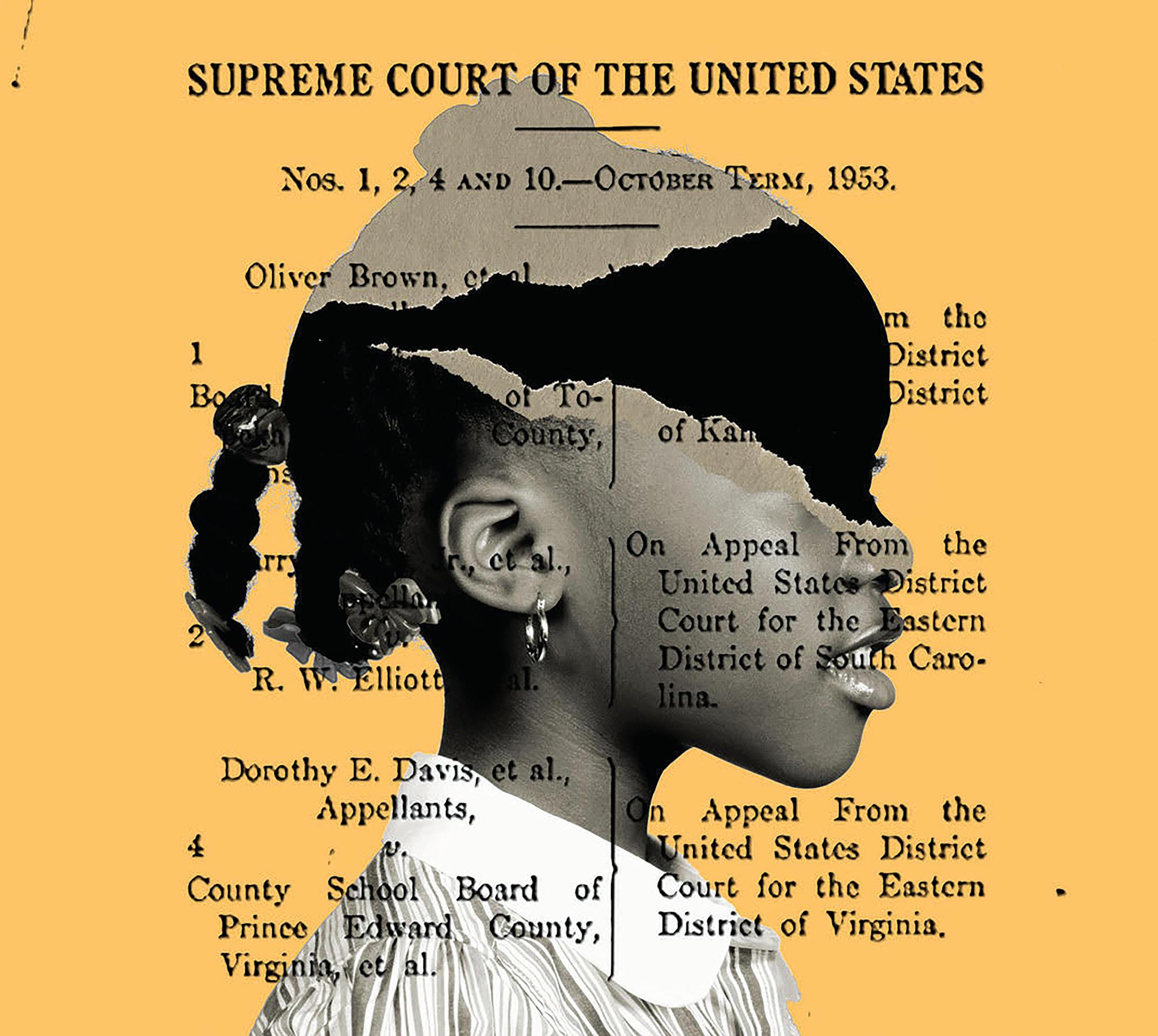Essayer OR - Gratuit
Was Integration the Wrong Goal?
The Atlantic
|April 2025
Why some mainstream Black intellectuals are giving up on Brown v. Board of Education

On May 17, 1954, a nervous 45-year-old lawyer named Thurgood Marshall took a seat in the Supreme Court's gallery. The founder and director of the NAACP Legal Defense and Educational Fund hoped to learn that he had prevailed in his pivotal case. When Chief Justice Earl Warren announced the Court's opinion in Brown v. Board of Education, Marshall could not have known that he had also won what is still widely considered the most significant legal decision in American history. Hearing Warren declare "that in the field of public education the doctrine of 'separate but equal' has no place" delivered Marshall into a state of euphoria. "I was so happy, I was numb," he said. After exiting the courtroom, he joyously swung a small boy atop his shoulders and galloped around the austere marble hall.
Later, he told reporters, "It is the greatest victory we ever had." For Marshall, the "we" who triumphed in Brown surely referred not only, or even primarily, to himself and his Legal Defense Fund colleagues, but to the entire Black race, on whose behalf they'd toiled. And Black Americans did indeed find Brown exhilarating. Harlem's Amsterdam Neus, echoing Marshall, called Brown "the greatest victory for the Negro people since the Emancipation Proclamation." W. E. B. Du Bois stated, "I have seen the impossible happen. It did happen on May 17, 1954." When Oliver Brown learned of the outcome in the lawsuit bearing his surname, he gathered his family near, and credited divine providence: "Thanks be to God for this." Martin Luther King Jr. encouraged Montgomery's activists in 1955 by invoking Brown. "If we are wrong, then the Supreme Court of this nation is wrong, If we are wrong, the Constitution of the United States is wrong. If we are wrong, God Almighty is wrong." Many Black people viewed the opinion with such awe and reverence that for years afterward, they threw parties on May 17 to celebrate Brown's anniversary.
Cette histoire est tirée de l'édition April 2025 de The Atlantic.
Abonnez-vous à Magzter GOLD pour accéder à des milliers d'histoires premium sélectionnées et à plus de 9 000 magazines et journaux.
Déjà abonné ? Se connecter
PLUS D'HISTOIRES DE The Atlantic

The Atlantic
You Had to Be There
An emerging field of history asks if we can ever really understand how our forebears experienced love, anger, fear, and sorrow.
23 mins
January 2026

The Atlantic
By the Horns
The week before the biggest bullfight of her career, in Cádiz, Spain, this past July, 24-year-old Miriam Cabas posted a carefully produced video on Instagram.
1 mins
January 2026

The Atlantic
The New German War Machine
After World War II, Germany embraced pacifism as a form of atonement. Now the country is arming itself again.
18 mins
January 2026
The Atlantic
The Eloquence
The prime minister was watching a disaster movie when we found him.
4 mins
January 2026

The Atlantic
What's for Dinner, Mom?
The women who want to change the way America eats
12 mins
January 2026

The Atlantic
How Terror Works
A 1947 German novel explores the sometimes corrosive, sometimes energizing nature of fear.
8 mins
January 2026

The Atlantic
Yesterday's Idea of a Modern Man
Sam Shepard, a self-made cowboy, was also a poet of masculine angst.
7 mins
January 2026

The Atlantic
ACCOMMODATION NATION
America's colleges have an extra-time-on-tests problem.
11 mins
January 2026

The Atlantic
Respect the Drummer
A new history of rock, told through its overlooked heroes
5 mins
January 2026

The Atlantic
THE MOST POWERFUL MAN IN SCIENCE
WHY IS ROBERT F. KENNEDY JR. SO CONVINCED HE'S RIGHT?
42 mins
January 2026
Listen
Translate
Change font size
